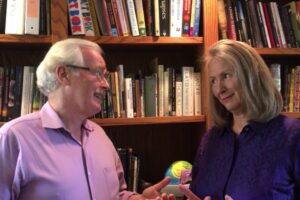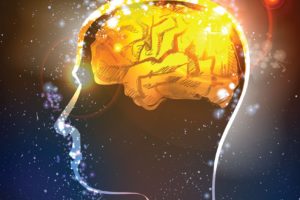Your personal story plays a leading role in your brain’s ability to overcome inflammaging (chronic inflammation which accelerates aging). Why? Because the “default network” brain activity that generates your personal life story is highly energetic. If we manage this energy effectively, our brains continually rejuvenate as we age. If we don’t, our brain’s useful life (brainspan) may fall short of our lifespan due to inflammaging.
Personal life story organizes brain activity for aging well
This is because the default network, the seat of consciousness, organizes your your memories, your personal story, your identity, your motivation, and your ability to tell time and navigate.
Many people think they don’t have a story, but we all do nonetheless. This personal story allows us to share our wisdom—which is the point of having our very own story.
The essence of being a member of homo sapiens sapiens—a double-wise person—is to share wisdom from your story. As a result, the human brain’s ultimate job duty is to knit together a personal life story.
However, the default network is far too powerful to be handled by the individual alone. This activity is regulated by balancing the needs and desires of “me” with the needs and desires of “we.” SuperAgers, people who live long and well over age 80, are the masters of default network activity. They have more brain connections in the “we” part of the brain than people 40 years their junior.
Inflammaging linked to loneliness and Alzheimer’s disease
Our stories and ourselves are shaped by our relationships with others as we search for love and meaning every day. Alzheimer’s disease targets the default  network and gradually disorganizes the brain activity that underlies personal memories. No memories, no story, no self. My story is my self. Your story is your self. But your story requires both a “me” and a “we.”
network and gradually disorganizes the brain activity that underlies personal memories. No memories, no story, no self. My story is my self. Your story is your self. But your story requires both a “me” and a “we.”
Some 95% of Alzheimer’s cases arise after age 65, thought to be a product of lifestyle, cultural, environmental, and psychosocial factors that are not well understood. Inflammaging is a known enabler of many age-related health challenges, including Alzheimer’s. Given how Alzheimer’s death rates vary from country to country and city to city, cultural attitudes and environmental factors that contribute to inflammaging may play a bigger role than individual factors.
Stories share wisdom and combat loneliness
Therefore, we need to consider how groups can contribute more to brain health. For at least 50,000 years, human groups have relied on rituals involving storytelling to combat loneliness and negative emotions, two major drivers of  inflammaging. Elders have always played a key role in ritualized storytelling that provides shared social meaning.
inflammaging. Elders have always played a key role in ritualized storytelling that provides shared social meaning.
Inflammaging teaches us that we are not designed to age alone. We need to share meaning with other people through stories—our default network says so!
One way to connect with others through stories is to attend live performances. These experiences relay stories through music, singing, dance, and theater, providing exercise for the default network, our inner storyteller.
So, stories keep us wise in mind and young at heart. Just say no to inflammaging, and just say yes to stories. New stories can help build your personal story in surprising new ways. Delight your default network with some new types of artistic experiences this year. See you on the aisle. Enjoy the story!
To learn more about your default network and other brain assets, see Chapter III of “Better with Age: The Ultimate Guide to Brain Training.” Better yet, take an autobiographical writing workshop at your local library, or take Brain Wealth’s “Build Your Life Story” workshop.





